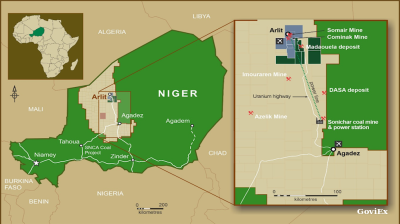Moldova was given the green light to start EU accession talks on December 14, just 18 months after EU leaders admitted it as a candidate country alongside Ukraine.
Georgia was given EU candidate status at the same time, but Bosnia & Herzegovina was told it will have to carry out more reforms before being allowed to start negotiations.
European Council President Charles Michel tweeted that the decisions were a "clear signal of hope" for the people of the three countries "and for our continent".
“The European Council has decided to open accession negotiations with Ukraine & Moldova,” he wrote on X (formerly Twitter).
“[The European Council] granted candidate status to Georgia. And the EU will open negotiations with Bosnia and Herzegovina once the necessary degree of compliance with the membership criteria is reached, and has invited the Commission to report by March with a view to taking such a decision.”
Accelerated progress
Both Ukraine and Moldova were given candidate status a few months after Russia’s invasion of Ukraine, which gave a new impetus to the enlargement process.
Moldova’s President Maia Sandu called the decision “a new page in our history” that was possible thanks to the united effort of all those who “work with perseverance and patience, who went out to vote, protested for freedom and never stopped believing that Moldova deserves more”.
“Two years ago, no one could have imagined that in 2023 the European Commission would propose the opening of accession negotiations with the Republic of Moldova," Moldova’s president said in a statement.
The country must still address the three targets not yet completed, before the Progress Report scheduled for March 2024, head of the EU Delegation in Moldova Janis Mazeiks said in an interview given to IPN after the European Commission recommended accession negotiations with Moldova on November 8.
According to the European Commission’s evaluation report, out of the nine conditionalities, Chisinau has fully completed six, and with respect to the remaining three, important progress has been registered.
Georgia gets candidate status
Georgia, the third of the Eastern Partnership states to apply for membership in 2022, remains one step behind Moldova and Ukraine.
The Georgian population is broadly enthusiastic about EU accession, but the government had been slow to address the priority actions set as a condition for granting candidate status.
“Today signifies a monumental milestone for Georgia and our European family! The unwavering will of the Georgian people has spoken, leading to the well-deserved attainment of candidate status,” tweeted President Salome Zurabishvili.
“Georgia's reunification with its European family is an irreversible prospect!”
Zurabishvili is the leading pro-EU figure in Georgia, and also a strong supporter of Ukraine, in contrast with some of the ruling Georgian Dream party's controversial actions and more complex relationship with Russia.
The decision to admit Georgia as a candidate came after the European Commission recommended in November that Georgia be granted candidate status, with conditions.
The conditions reflect a mix of previously suggested recommendations and new directives. Key among these is the need to address issues such as political polarisation, judicial reform and de-oligarchisation, all of which have been long-standing concerns. Furthermore, the Commission is calling for Georgia to align its foreign and security policy more closely with that of the EU.
Talks with Bosnia postponed
The Council of the EU decided not to start membership talks with Bosnia at its session on December 14, saying that the country should first meet all criteria set as a condition for starting talks.
The decision comes despite last-minute efforts by Sarajevo to show strong will to advance on its European path and despite hopes that Brussels might make a compromise over the unfulfilled requirements.
“The European Council will open accession negotiations with Bosnia & Herzegovina, once the necessary degree of compliance with the membership criteria is achieved. It invites the Commission to report to the Council on progress at the latest in March 2024, with a view to making a decision,” the EU Council said in its decision.
Earlier the same day, Bosnia’s state-level government adopted a key draft bill on preventing money laundering and financing of terrorism, which should be in line with European regulations.
However, the country is far from being even half way to completing the 14 key priorities set by the EU as a condition for the start of membership talks.
There are also concerns regarding secessionist rhetoric in Republika Srpska
Years of waiting
The speed with which Moldova and Ukraine have advanced to negotiation stage contrasts with the slow progress of long-standing candidate countries from the Western Balkans.
North Macedonia became a candidate country back in December 2005 – 18 years ago. However, its progress was repeatedly stalled because of bilateral disputes with its neighbours that saw first Greece and later Bulgaria vetoing the start of accession talks.
While it has been given the nod to start talks by EU members, the government is first required to pass controversial constitutional changes demanded by Bulgaria.
Albania, like North Macedonia, was given the go-ahead to start accession negotiations in 2022, when the war in Ukraine led to an acceleration of the enlargement process. However, in recent weeks Athens has warned it will veto the start of talks amid a dispute over the arrest of ethnic Greek mayor Fredi Beleri.
Montenegro is currently the most advanced state on the path towards accession, and the new government hopes to revitalise the process after several years during which political instability stalled reform progress.
News

GoviEx, Niger extend arbitration pause on Madaouela uranium project valued at $376mn
Madaouela is among the world’s largest uranium resources, with measured and indicated resources of 100mn pounds of U₃O₈ and a post-tax net present value of $376mn at a uranium price of $80 per pound.

Brazil’s Supreme Court jails Bolsonaro for 27 years over coup plot
Brazil’s Supreme Court has sentenced former president Jair Bolsonaro to 27 years and three months in prison after convicting him of attempting to overturn the result of the country’s 2022 election.

Iran cleric says disputed islands belong to Tehran, not UAE
Iran's Friday prayer leader reaffirms claim to disputed UAE islands whilst warning against Hezbollah disarmament as threat to Islamic world security.

Kremlin puts Russia-Ukraine ceasefire talks on hold
\Negotiation channels between Russia and Ukraine remain formally open but the Kremlin has put talks on hold, as prospects for renewed diplomatic engagement appear remote. Presidential spokesman Dmitry Peskov said on September 12, Vedomosti reports.



